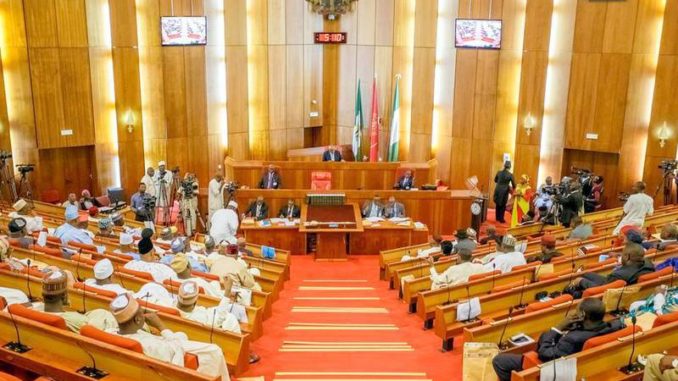
But for the strange COVID-19 disruption, a report the other day that the Nigerian Senate was considering a bill that would make debates compulsory for presidential and governorship candidates and their running mates would have been remarkable. In the view of senators, debates will be used to ‘‘sample the candidates’’’ knowledge on a wide range of issues, like a detailed analysis of how they intend to drive the economy and other issues.
This is laudable. The bill has already passed its second reading. It makes provision for the Independent National Electoral Commission (INEC) to organise the debates. At the state level, the electoral bodies would be expected to organise debates among all the governorship candidates and their running mates. Governance is serious business. It shapes or mars millions of lives and the future of the country. Only the best people should present themselves for leadership roles. This is at the core of political debates among and between candidates. Debates are healthy in a democracy.
Apart from revealing the depth of knowledge of the contestants, they also help the electorate to evaluate the mental capacity of the candidates. Any politician who seeks to lead Nigeria in the 21st century ought to have in-depth knowledge of history, political economy, cultural nuances, negotiated codes of inter-ethnic relations and foreign affairs. The very nature of our federation requires intelligent and urbane minds who will not become capricious and clannish in managing the affairs of the country. Besides, the capacity to express oneself is fundamental to winning the hearts of the people.
In the 2019 election, we noticed a charade on the part of the APC presidential candidate when it was imperative on him to articulate the core issues of the day. “He who cannot put his thoughts on ice should not enter into the heat of dispute,” once wrote Friedrich Nietzsche the German philosopher. Sadly, that nightmare still plagues the nation. A modern president or governor who cannot effectively communicate with the people, who lacks the innate ability to interrogate the fundamental issues of the day is likely to create a wall between him and the people.
A modern president or governor must be prepared for the tasks of the office. The executive system of government we operate requires the candidates to be properly educated and briefed on issues of development and international relations. There have been instances where the chief executive failed to appreciate the benefits of historical occurrences and ultimately caused a breakdown of law and order. For example, entrusting the security architecture of Nigeria into the hands of a section of the country does not show full appreciation of the dynamics that have produced the Nigeria that we live in. It has been a cause of frequent tension between the people and the presidency. The world is a global village and the life of a nation is ultimately linked to the wider issues of the day.
The problems, which confront our country require a rounded man. It is true that politicians who are gifted with the power of oratory may not be the best policy framework developers. For, as we know, talk is cheap. That is why Benjamin Franklin, one of the founding fathers of the United States warns that, “great talkers” may be “little doers.” Nigerians had been given the short end of the stick by politicians right from the First Republic. They make grand promises during campaigns only to renege on their word in a cavalier manner.
Put simply, they display a high level of disdain for the electorate, the people in whom the Constitution bestows sovereignty. We are therefore aware that the hood does not make the monk. But political debates compel candidates to prepare to be assessed by the entire nation. Sadly, we are also aware that because of the prebendal nature of politics, which we practise, people tend to vote along lines that are not conventional. For example, in ethnic politics, voters would cast their ballot for the man from their ethnic group even if the candidate in question finds it difficult to read the alphabet.
This is the bane of our politics. Our people need political education and re-education. In the end, we get the kind of leadership that we deserve. There are many unsettled fundamental issues in our national life. Joseph Joubert opines that, “it is better to debate a question without settling it than to settle a question without debating it.” We need to discuss them in an atmosphere devoid of rancour and hatred. We need to agree on the nature and structure of the republic. We need to redefine the relationship between the federal authorities and the constituent parts of the federation. We need to practise fiscal federalism. We also need to review the powers of state governors. The security architecture of the country should be tuned to reflect current realities. These issues should form the basis of discussions at legal presidential debates.
While we welcome the formalisation of election debates, we call on INEC as the umpire to be impartial and stick to the rules. Often, we perceive INEC as yielding to the wishes of the party in power. This is wrong, unethical and unbecoming of an institution, which is charged with delivering credible elections. At all times, INEC should not only be an impartial judge but must be seen to be impartial. The rules for the debates should be clearly spelt out well in advance if the exercise is to avoid unnecessary bickering. Whatever the provisions of the law, we urge political gladiators to respect the rules of social engagement before, during and after political campaigns.
END

Be the first to comment